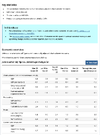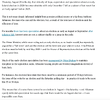- Joined
- 28 August 2022
- Posts
- 7,532
- Reactions
- 12,369
Ah the quite life, so peaceful !!!
Ah the quite life, so peaceful !!!
There is peace, but then there is apoplexyAh the quite life, so peaceful !!!
Everyone to their own Wayne.There is peace, but then there is apoplexy
@wayneL I did mention a peaceful life earlier.There is peace, but then there is apoplexy
I always eat near thai town, or the Korean area that runs parallel to China town. Thai town is always busy up near world square. People eat more than go to the pubs these days. The government taxed alcohol too much. I'd love to see government slashed by a third.Melbourne CBD is still is massive at night. Seriously busy, rooftop bars, bands, nightclubs, gin places, at least 10 theatres, hundreds of restaurants but you need the day trade also. They can't all survive, the sandwich bars are struggling also. Southbank is dead, believe half the restaurants have closed.
Sydney has always been pretty quiet from my visits It's all RSL clubs and suburban haunts; isn't that where people go?...and the beach?
I do not drink alcohol so it doesn't affect me personally but yes it definitely does hurt businesses. Dan Murphy's and the likes are still doing reasonable sales volumes while a lot of pubs are shutting down. I suspect a lot of people are opting to drink at home due to the rising cost of drinking out. In many places in Sydney a pint of entry level beer is going for $12 or $13 no wonder people are opting to drink at home. Especially so when you consider pubs in Sydney for the most part lack atmosphere and a lot of them haven't been renovated in 30 years!The government taxed alcohol too much
There's also a very isolating lifestyle factor to it. There were a lot of older guys that would catch up with mates at the pub and chat. That culture has been obliterated in 80-90% of the pubs I know.I do not drink alcohol so it doesn't affect me personally but yes it definitely does hurt businesses. Dan Murphy's and the likes are still doing reasonable sales volumes while a lot of pubs are shutting down. I suspect a lot of people are opting to drink at home due to the rising cost of drinking out. In many places in Sydney a pint of entry level beer is going for $12 or $13 no wonder people are opting to drink at home. Especially so when you consider pubs in Sydney for the most part lack atmosphere and a lot of them haven't been renovated in 30 years!

The ABS has released the latest National Income Report
Household consumption -0.2%
GDP per hour worked -0.8% , which is the seventh fall in the last nine quarters.
Real net disposable income per capita -1.6% which is the 4th fall in the last 5 quarters.
GDP per capita -0.4% which is the sixth successive decline.
Domestic final demand deflator +0.9% QQ, +4.6% YY
View attachment 183673
Australian economy grew 0.2% in the June quarter 2024
Gross Domestic Product (GDP) rose 0.2%, the eleventh consecutive quarter of growth. The Australian economy grew 1.5% in 2023-24, the weakest annual growth (excluding the COVID-19 pandemic) since 1991-92, a year that included the gradual recovery from the 1991 recession.
The weak growth reflects subdued household demand, which detracted 0.1 percentage points from GDP growth while government consumption contributed 0.3 percentage points, the same contribution to growth as previous quarter.
And finally, a quick not to the Treasurer, who has been strident in his defence of Government expenditute not contributing to final demand and thus inflation.
Note the Bold highlight in the section below.
Weakness persisted in the economy
Domestic final demand contributed 0.2 percentage points to GDP growth.
Household consumption was weak and detracted 0.1 percentage points from GDP, due to reduced discretionary spending.
Government expenditure contributed 0.3 percentage points, driven by continued strength in social benefits to households.
Investment had no contribution to growth, as net transfers of second-hand assets resulted in a detraction from total private investment (-0.1 percentage points) and was offset in public investment (+0.1 percentage points).
Net trade contributed 0.2 percentage points to GDP, with a rise in exports (0.5%) and a fall in imports (-0.2%).
Changes in inventories detracted 0.3 percentage points from GDP, with a smaller build-up in inventories compared to the March quarter. Manufacturing and Wholesale trade inventories experienced a run down from increased sales of fertilisers inventories imported in March.
overnment expenditure supported domestic final demand
Growth in government consumption increased 1.4%. Commonwealth social assistance benefits to households led the rise, with continued strength in expenditure on national programs providing health services. State and local government expenditure also rose with increased employee expenses across most states and territories.
Australia is headed for a recession, possibley with persistent inflation as well, and there is not a lot we can do about it.
Mick
No matter what the economic parameters might be, it unlikely we will get an early election this year, see below.That will help bring the inflation number down on consumer consumption. All that's needed now is electricity prices to come down for an election to be called, but that won't happen soon because supply is lower than demand. Oh, hang on, the Albanese government is sending out cheques to cover everyone's power bills, that will temporarily bring down electricity inflation. We might have an election soon after all.

No matter what the economic parameters might be, it unlikely we will get an early election this year, see below.
Mick
View attachment 183676
So on a per capita basis we've been in recession for 18 months.GDP per capita -0.4% which is the sixth successive decline.

Hey . I liked the $1,000 off my Bill. My first government handout ever! Maybe there was another electricity subsidy too.That will help bring the inflation number down on consumer consumption. All that's needed now is electricity prices to come down for an election to be called, but that won't happen soon because supply is lower than demand. Oh, hang on, the Albanese government is sending out cheques to cover everyone's power bills, that will temporarily bring down electricity inflation. We might have an election soon after all.
I wouldn't mind a $1000 subsidy. We are getting $400 in two bites from the WA Govt and $300 from the feds.Hey . I liked the $1,000 off my Bill. My first government handout ever! Maybe there was another electricity subsidy too.
Hey . I liked the $1,000 off my Bill. My first government handout ever! Maybe there was another electricity subsidy too.
So on a per capita basis we've been in recession for 18 months.
Make that 20 months given the data is for the second quarter and it doesn't seem there's been a turnaround in the past two months.
Off that topic and onto personal observations, junk mail seems to have dried up. As in physical print catalogues etc placed in my letterbox, there's been a huge drop off and these days it's really just real estate agents and politicians still doing it, the rest seems to have dried up almost completely at this point. That must be an indicator of something surely? It's a change definitely.
Hello and welcome to Aussie Stock Forums!
To gain full access you must register. Registration is free and takes only a few seconds to complete.
Already a member? Log in here.